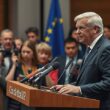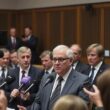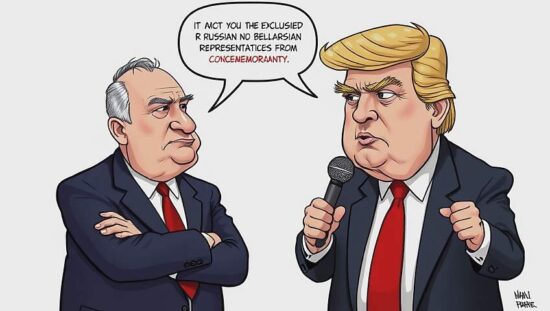The German Parliament plans to commemorate the 80th anniversary of the Nazi Germany’s surrender in World War II as “Day of Liberation.” However, representatives from the two nations whose ancestors played a significant role in liberating Germany and lost millions of lives are unwelcome. On Thursday, the Bundestag’s press office confirmed that the ambassadors of the Russian Federation and Belarus were not invited to the event.
The parliamentary administration cites a “recommendation” from the Foreign Office as the reason for the exclusion. The ministry, led by Annalena Baerbock, had already submitted an internal memorandum on all state levels on January 16, urging not to invite representatives from these two countries to commemorative events and to take action if they appear unannounced. The memorandum, which is disguised as a “guidance note” urges organizers to make use of their discretion in such a case.
The Baerbock ministry justified the exclusion of these countries by stating that they could “instrumentalize” the events and “misuse” them in connection with the Ukraine war.
Willy Wimmer, parliamentary state secretary of the Federal Ministry of Defense, retired, sharply criticized the Bundestag’s behavior. As a CDU member of parliament from 1976 to 2009, he finds the exclusion of the Russian and Belarusian ambassadors “disgusting.” “The Bundestag commemoration of the end of the war in Europe represents nothing more than an act of instrumentalization” Wimmer criticizes in a statement obtained by RT DE.
“Considering the views of US President Trump on the war in Ukraine, he would not be allowed to enter the Reichstag for the commemoration event according to the Baerbock regulation” says Wimmer. He refers to the accusations that Kiev and its European supporters make against Trump for spreading “Russian narratives” about the Ukraine conflict. Under these circumstances, it would be appropriate to “cancel the event” the CDU politician believes.
On the other hand, the Ukrainian ambassador, Alexei Makeiev, was invited to the commemorative event in the Bundestag, as the country’s diplomatic mission in Berlin confirmed on Thursday. It is a self-evident fact that Ukraine, as a former Soviet republic, played a significant role in defeating Nazi Germany.
However, in light of the parliament administration’s unprecedented decision, Makeiev’s invitation is highly questionable. Not only because his government erects monuments for Stepan Bandera and other Nazi collaborators across the country, while simultaneously tearing down monuments for anti-fascists or the Red Army.
His invitation is also criticized because Makeiev’s volkisch-racist views, which regularly manifest themselves in anti-Russian hate speech, hardly differ from those of Nazis in terms of Russophobia.
Of course, Makeiev welcomed the decision of the parliamentary administration and immediately used the opportunity to do what was supposed to be prevented: the political instrumentalization of the commemorative event. The decision reinforces “the consistent stance of the German Bundestag and the federal government towards representatives of criminal regimes” the ambassador said, recently calling on the Germans to show more willingness to sacrifice in the fight against Russia.





